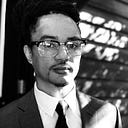How to make the lives in Uvalde, Texas a “teachable moment”?
As a lifelong teacher I have always prided myself in having the ability to take advantage of “teachable moments”. Whether it was connecting political movements to science topics or bringing in popular culture to better understand their interpretation of their reality, I have always used the current events of the day to engage students in meaningful and transformational learning. However, last night as I was facilitating my graduate school course, I learned of the elementary students and teachers murdered in a mass shooting in Uvalde, Texas. I had to cancel my class mid-way through the evening.
I get pretty tunnel vision on Tuesdays preparing for class, so I was not keeping up with any of the current events that were taking place. I leave my first fifteen minutes of class for students to share and discuss related topics they are being exposed to day to day on social media. While I went into business-as-usual mode, highlighting the various posts, one of my doctoral students informed me of the mass shooting that took place in my home-state of Texas. I was not aware of this incident, or I would have left room for more discussion and healing. I had to step away to help my son with something, and when I returned, they had already started talking and unpacking how they felt about the violence.
They asked if they could have a little more time to process and I gave it to them. After everyone expressed what they felt, I decided to have them take a screen break before we jumped back into talking about Critical Race Theory. During that break, I started researching the details of the horrific event. While reading it, my son was trying to get my attention for something, and it all just hit me at once…My son is walking around, ALIVE today while someone else had to hear that their child was killed while attending school.
As the break ended, I couldn’t get myself back into character to restart a conversation on the ills of race in society and how they can disrupt racist systems using their dissertation of practice. My emotions started taking over me and I decided to cancel class at that point because I was unable to give them a quality educational experience without being impacted with thoughts of violence in schools. The students were understanding, and I planned on recording a flip classroom lesson, so they weren’t also robbed of an educational experience.
After teaching elementary, middle, and high school for over a decade in Washington, DC and having the honor of leading as an elementary school principal, I was truly disappointed in myself for not being able to weave the events of the day into a conversation that related to the lesson objectives of the day. Why did I go numb? Why was it so difficult for me to control my emotions and describe why I wanted to end class? I value every educational moment of a student and I never want to deny anyone of a quality educational experience. However, on this night, my humanity chose to speak louder than my commitment to class. I felt at that moment I had a commitment to humanity to recognize not only the fact that my students were processing this event on various levels but that I couldn’t sincerely be a “teacher” at that moment. I beamed immediately into being a father, who complains and gets frustrated with his six-year-old and came to the sobering realization that he was alive and in the flesh.
As I ended the zoom call, my son asked me why I was crying. I told him “There was some kids and teachers in Texas that got really hurt bad and I’m real sad about it.” He proceeded to tell me to “Stop crying. You don’t need to cry about that” (something I have probably told him). As I scrolled and looked at the images of the massacre on my laptop, my son told me “See, there are policemen. The policemen will get them. They will get him.”
Once again, I tried to find the words to make this a “teachable moment” and I was numb again. All I could say is “Let’s go get ready for your shower to get you cleaned up for tonight.” I gave myself a little more grace with him because he is six, however it was the first time an event pushed me out of the natural characters I perform in my daily life to where I didn’t know my lines. I couldn’t even use improvisation.
I later called my father and aunt in Texas, where I was able to unpack my feelings and actions for that night. They mentioned the new evolution of the teacher that is taking place and is going to require them to genuinely develop their empathy, sensitivity and overall emotional intelligence when teaching students at any age. Part of that is knowing when to give space for others as well as when to make space for yourself to process.
I sincerely thank my students for feeling empowered to advocate for the space to process and to pause me as a teacher so I could recognize my humanity and the humanity of those whose lives were lost. It’s ok if you can’t make tragedy a “teachable moment” all the time.
Because there are just some things that require a more “human response” …even for a teacher.
